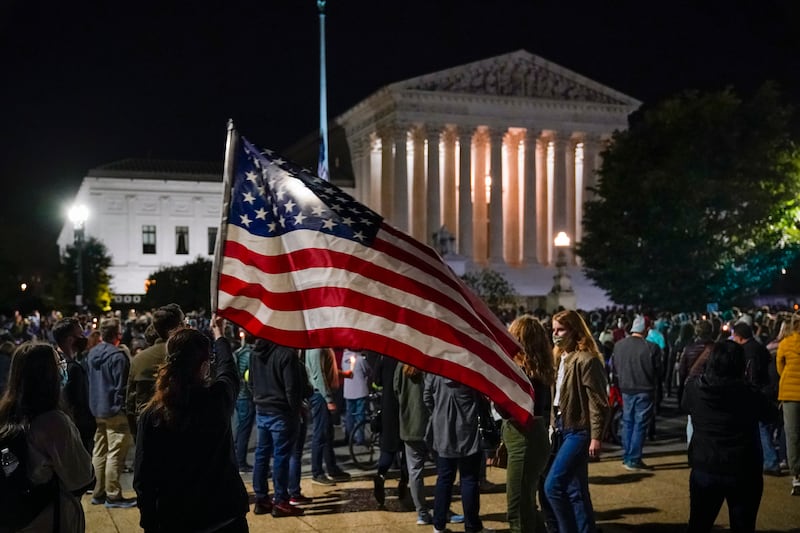Just when you thought 2020 couldn’t get any crazier, the passing of Justice Ruth Bader Ginsburg moves a Supreme Court confirmation battle into the presidential election. To get a sense of initial reactions to this new development, I ran a survey of 854 likely voters on Saturday.
Not surprisingly, the survey found that 64% of likely voters had a favorable opinion of Ginsburg. Just 16% voiced an unfavorable view, while 20% are not sure. That’s consistent with other surveys conducted in recent years. Justice Ginsburg was the most recognized name of all Supreme Court justices, often the only name recognized by more than half the nation’s voters.
Despite — or perhaps because of — the fact that most Americans don’t know the justices by name, the Supreme Court gets generally positive ratings from voters. Fifty-three percent (53%) believe the court is doing a good or an excellent job, while just 8% rate its performance as poor. Opinion of the court has remained positive and consistent over the past generation. It’s inched up or down a few points following specific high-profile cases, but it always returns to the norm.
Currently, 33% believe the ideology of the court is about right. Thirty percent say it’s too conservative, 20% too liberal, and 18% not sure. However, 44% believe the courts and the U.S. legal system have been too lenient in dealing with protestors who commit violent acts. Just 18% believe the treatment has been too harsh.
Regardless of how the broader electorate views the court, partisan activists have come to see this confirmation battle as something akin to the war to end all wars. People on both sides of the aisle have reacted as if the fate of the nation hinges on the upcoming confirmation battle.
And it turns out that both sides of the debate can find majority support for their major talking points. Democrats can be pleased 52% of likely voters believe the Senate should wait to confirm Ginsburg’s replacement until after the presidential election. That’s the view of Joe Biden’s campaign, along with Senate Democrats.
On the other hand, 41% disagree and side with Donald Trump and Senate Republicans. They believe a new justice should be confirmed as soon as possible. Not surprisingly, there is a substantial partisan divide on this question.
- Seventy-three percent (73%) of Republicans believe the new justice should be confirmed as soon as possible.
- Eighty percent (80%) of Democrats believe confirmation should wait until after the election.
- Independent voters were more evenly divided. Fifty-one percent agree with the Democrats and 40% with the Republicans.
But, on another question, voters are more in line with the Trump campaign: 59% of the nation’s likely voters believe Joe Biden should let voters know who he would nominate if elected. Just 21% disagree, while 20% are not sure.
The partisan divide on this is interesting. Even though this is a position articulated by the Trump campaign, Democratic voters are even more likely than Republican voters to think Biden should disclose his pick. Sixty-six percent of Democrats want their party’s nominee to announce who he would nominate for the court. That view is shared by 57% of independent voters and 52% of Republicans.
While political junkies can obsess over these and other details, there is another message that comes through loud and clear in the survey. The election is about more than the Supreme Court nomination. Sixty-six percent of voters say that’s a very important topic. But 69% say the same about the economy. Several other issue are in the same ballpark.
In fact, there is one survey detail that suggests focusing exclusively on the court might be a mistake. About 18% of the voters in election 2020 don’t think things would be all that different in America if Hillary Clinton was living in the White House. In other words, they don’t share the partisan passions of more engaged voters. And for these less entrenched voters, the economy remains the No. 1 issue.
Scott Rasmussen is an American political analyst and digital media entrepreneur. He is the author of “The Sun is Still Rising: Politics Has Failed But America Will Not.”


